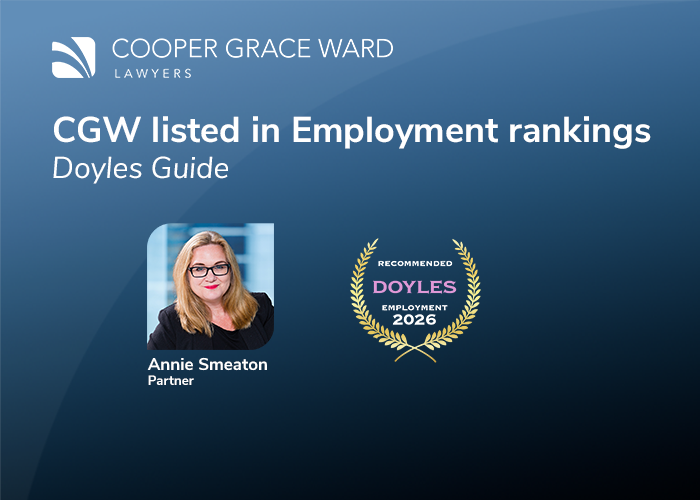Injured workers often apply out of time for review of insurers’ decisions in statutory workers’ compensation claims on the basis of ‘special circumstances’. But what really constitutes ‘special circumstances’? A recent Court of Appeal decision clarifies the position.
Under the Queensland workers’ compensation regime, interested parties have a limited period of time within which to challenge decisions of insurers or the Workers’ Compensation Regulator. The decision most commonly challenged is that by an insurer to reject an injured worker’s application for compensation, which must be appealed within three months.
In the case of Workers’ Compensation Regulator v Pryszlak [2018] QCA 157, the Court of Appeal considered whether Mr Pryszlak had ‘special circumstances’ to justify an application for review considerably out of time.
The facts
WorkCover Queensland rejected Mr Pryszlak’s application for compensation on the basis he did not sustain an injury within the course of his employment. Mr Pryszlak did not seek a review of the decision within three months. Instead, after about 15 months, he engaged a solicitor.
Once engaged, Mr Pryszlak’s solicitor quickly gathered additional evidence and applied for a review. As part of the application, the solicitor explained that:
- WorkCover’s initial decision had been based on incomplete and incorrect facts, which Mr Pryszlak did not appreciate, at least partly because he had not been afforded natural justice.
- Mr Pryszlak had not sought a review of the decision earlier because he was ‘not highly literate’, was ignorant of his entitlements, and lacked an appreciation of the scheme.
The additional evidence provided by the solicitor justified a reversal of the initial decision. However, the Regulator declined to consider the application for review on the basis it was out of time. Mr Pryszlak sought judicial review of that decision by the Regulator.
The Court of Appeal’s decision
The Court of Appeal unanimously found that Mr Pryszlak had demonstrated ‘special circumstances’ to justify an out of time application for review. In doing so, it affirmed the first instance (judicial review) decision of McMeekin J.
The Court noted:
- The purpose of the three-month limitation is to provide the employer and insurer the benefit of finality. However, the overriding purpose of the scheme is to provide for compensation, which requires that ‘injured workers are treated fairly by insurers’. This, in turn, extends to making administrative decisions according to law. In Sofronoff P’s words:
The power to extend time exists to prevent injustice in a particular case that might be caused by the enforcement of a general time limit. It is an instance of the general policy of the law to ensure that mandatory statutory provisions are not applied blindly so as to cause injustice in an individual case.
- In the case of section 542, ‘the large factor’ will always be the explanation for the delay. However, the merits of the compensation claim ‘are also obviously relevant’. ‘If a claim has little merit, there can hardly be any likely injustice in refusing an extension of time.’ Conversely, the existence of ‘an evidently meritorious claim’ will bear upon the issue of ‘whether other relevant circumstances taken together with the merits would constitute special circumstances’.
The Court of Appeal then found in respect of Mr Pryszlak’s circumstances:
- He had been denied natural justice, particularly by WorkCover failing to inform him of (or give him the opportunity to respond to) the evidence it was obtaining and considering before its decision was made.
- The failure to afford procedural fairness meant that (a) the decision sought to be reviewed was not a decision at all and (b) the fact that the decision maker had not actually performed their statutory duty was ‘undoubtedly’ a special circumstance, especially because one of the objects of the legislation is that workers be treated fairly.
- The failure by the Regulator to consider the obvious merits of his claim also vitiated its decision.
Lessons
The key lessons from this decision are simple:
- While injured workers’ entitlements must be balanced against the benefits of finality, the fundamental reason for extension of time provisions is to ensure time limits do not cause injustice in a particular case.
- The merits of an out of time application are almost as important as the reasons for the delay because those merits go to the question of injustice.
- Injured workers must be provided natural justice and procedural fairness at every step, in every process.
For further information on this decision or any related workers’ compensation matter, please contact the Cooper Grace Ward team.





